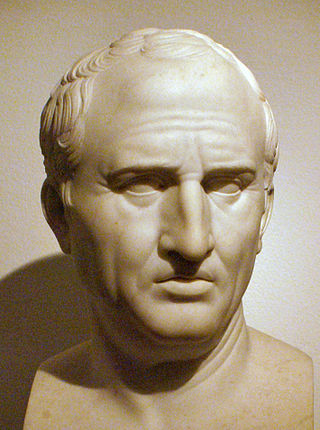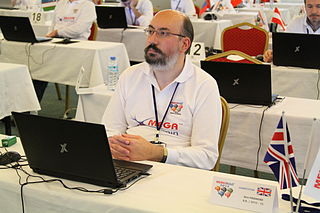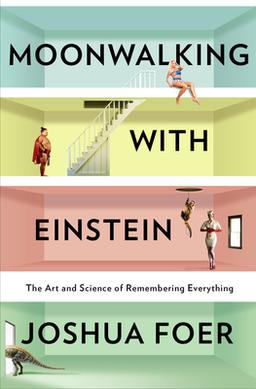Related Research Articles

A mnemonic device or memory device is any learning technique that aids information retention or retrieval in the human memory, often by associating the information with something that is easier to remember.
The mnemonic peg system, invented by Henry Herdson, is a memory aid that works by creating mental associations between two concrete objects in a one-to-one fashion that will later be applied to to-be-remembered information. Typically this involves linking nouns to numbers and it is common practice to choose a noun that rhymes with the number it is associated with. These will be the pegs of the system. These associations have to be memorized one time and can be applied repeatedly to new information that needs to be memorized.

Daniel Irvin Rather Jr. is an American journalist, commentator, and former national evening news anchor. He began his career in Texas, becoming a national name after his reporting saved thousands of lives during Hurricane Carla in September 1961. In his first national broadcast, he helped initiate the successful evacuation of 350,000 people. He reported on some of the most significant events of the modern age, such as the fall of the Berlin Wall, the Gulf War, 9/11, the Iraq War, and the war on terror.
CBS News is the news division of the American television and radio broadcaster CBS. CBS News television programs include the CBS Evening News, CBS Mornings, news magazine programs CBS News Sunday Morning, 60 Minutes, and 48 Hours, and Sunday morning political affairs program Face the Nation. CBS News Radio produces hourly newscasts for hundreds of radio stations, and also oversees CBS News podcasts like The Takeout Podcast. CBS News also operates CBS News 24/7, a 24-hour digital news network.
Memorization is the process of committing something to memory. It is a mental process undertaken in order to store in memory for later recall visual, auditory, or tactical information.

The method of loci is a strategy for memory enhancement, which uses visualizations of familiar spatial environments in order to enhance the recall of information. The method of loci is also known as the memory journey, memory palace, journey method, memory spaces, or mind palace technique. This method is a mnemonic device adopted in ancient Roman and Greek rhetorical treatises. Many memory contest champions report using this technique to recall faces, digits, and lists of words.
The title mnemonist refers to an individual with the ability to remember and recall unusually long lists of data, such as unfamiliar names, lists of numbers, entries in books, etc. Some mnemonists also memorize texts such as long poems, speeches, or even entire books of fiction or non-fiction. The term is derived from the term mnemonic, which refers to a strategy to support remembering, but not all mnemonists report using mnemonics. Mnemonists may have superior innate ability to recall or remember, in addition to relying on techniques.
Hyperthymesia, also known as hyperthymestic syndrome or highly superior autobiographical memory (HSAM), is a condition that leads people to be able to remember an abnormally large number of their life experiences in vivid detail. It is extraordinarily rare, with fewer than 100 people in the world having been diagnosed with the condition as of 2021. A person who has hyperthymesia is called a hyperthymesiac.
The art of memory is any of a number of loosely associated mnemonic principles and techniques used to organize memory impressions, improve recall, and assist in the combination and 'invention' of ideas. An alternative term is "Ars Memorativa" which is also translated as "art of memory" although its more literal meaning is "Memorative Art". It is also referred to as mnemotechnics. It is an 'art' in the Aristotelian sense, which is to say a method or set of prescriptions that adds order and discipline to the pragmatic, natural activities of human beings. It has existed as a recognized group of principles and techniques since at least as early as the middle of the first millennium BCE, and was usually associated with training in rhetoric or logic, but variants of the art were employed in other contexts, particularly the religious and the magical.

Ben Pridmore is a former world memory champion, memory sport competitor and accountant.
Nationwide public opinion polls conducted relating to the 2008 Republican presidential candidates, typically using standard statistical methodology, include the following. The public was generally sampled by land-line telephone only, and sometimes asked only about their opinion of certain candidates.
Johannes Mallow is a German memory sportsman. He is a one-time pre-split winner of the World Memory Championships in 2012. He has also won another title post-split in the IAM event in 2018, a disputed one where he would have ranked outside top 5 in the event both World events’ scores were to be compiled into a single ranking. He studied successfully Communication Technology at the Otto-von-Guericke University of Magdeburg and finalized his PhD thesis in 2016 at the University of Duisburg-Essen. He also works as a mind coach and scientific author.
Exceptional memory is the ability to have accurate and detailed recall in a variety of ways, including hyperthymesia, eidetic memory, synesthesia, and emotional memory. Exceptional memory is also prevalent in those with savant syndrome and mnemonists.
Eidetic memory, also known as photographic memory and total recall, is the ability to recall an image from memory with high precision—at least for a brief period of time—after seeing it only once and without using a mnemonic device.
Memory sport, sometimes referred to as competitive memory or the mind sport of memory, refers to competitions in which participants attempt to memorize then recall different forms of information, under certain guidelines. The sport has been formally developed since 1991 and features national and international championships. The primary worldwide organizational bodies are the IAM and WMSC.

Moonwalking with Einstein: The Art and Science of Remembering Everything is a nonfiction book by Joshua Foer, first published in 2011. Moonwalking with Einstein debuted at number 3 on the New York Times bestseller list and stayed on the list for 8 weeks.

On July 20, 2012, a mass shooting occurred inside a Century 16 movie theater in Aurora, Colorado, United States, during a midnight screening of the film The Dark Knight Rises. Dressed in tactical clothing, 24-year-old James Eagan Holmes set off tear gas grenades and shot into the audience with multiple firearms. Twelve people were killed and 70 others were injured, 58 of them by gunfire.

James Eagan Holmes is an American mass murderer responsible for the 2012 Aurora theater shooting in which he killed 12 people and injured 70 others at a Century 16 movie theater on July 20, 2012. He had no known criminal background before the shooting occurred. Before the shooting, Holmes booby-trapped his apartment with explosives, which were defused one day later by a bomb squad.

Nelson Charles Dellis is an American memory athlete and consultant. He is a six-time USA Memory Champion, holding the record for most wins of the national memory champion title. He is also one of the co-founders of Memory League. Nelson also runs Climb 4 Memory - a nonprofit which "aims to raise funds and awareness for Alzheimer's disease research through mountain climbs around the world."
The USA Memory Championship is an annual competition that took place every spring in New York City until 2016, and is currently held in Orlando, Florida, after an online qualifier. It was founded by Tony Dottino, President of Dottino Consulting Group, Inc., and Marshall Tarley in 1997. Designed to test the limits of the human brain, the USA Memory Championship is an organized competition in which Memory Athletes (MAs) attempt to memorize as much information as possible in events such as Names and Faces, Cards, Random Numbers, Images, and guest information at a fictional "Tea Party". Since 2018, there is also often an event called Long-Term Memory in which the MAs are given reams of data a month in advance about a wide variety of subjects such as the Periodic table of the elements, Space Shuttle missions, NFL Hall-of-Famers, etc. Participation is open to US citizens who are at least 12 years of age. The competition currently consists of 9 total events, 5 of which are online qualifying events, while the last four events are held at a live event to determine the champion.
References
- 1 2 3 "World Memory Statistics: Chester Santos". World Memory Statistics. Retrieved 4 October 2013.
- 1 2 "Software engineer is top U.S. "mental athlete"". Reuters. 9 March 2008. Archived from the original on 4 October 2013. Retrieved 4 October 2013.
- 1 2 3 4 "How Smart Can We Get?". PBS Nova. Retrieved 4 October 2013.
- 1 2 "MLOVE ConFestival Europe 2012 – Speaker Lineup". MLOVE. Archived from the original on 4 October 2013. Retrieved 4 October 2013.
- 1 2 "Walk Down Memory Lane With Chester Santos". NBC Bay Area. 30 April 2010. Retrieved 4 October 2013.
- 1 2 "The Unforgettable "Memory Olympics"". CBS Evening News. Retrieved 4 October 2013.
- ↑ Ramirez, Anthony (12 March 2006). "You Must Remember This, or Just Forget About It". New York Times. Retrieved 4 October 2013.
- 1 2 3 Scott, Megan K. (20 June 2008). "'Brain fitness' market booming with Boomers". USA Today. Retrieved 4 October 2013.
- 1 2 3 4 5 6 "It Was a Day to Remember For America's Mental Athletes". Wall Street Journal. Retrieved 4 October 2013.
- ↑ "American Morning". CNN. Retrieved 4 October 2013.
- 1 2 Madrigal, Alexis (22 April 2008). "Video: US Memory Champ Helps You Program Your Memory". Wired. Retrieved 4 October 2013.
- 1 2 "US man gets unforgettable win - in memory contest". Yahoo! News. 25 March 2012. Retrieved 4 October 2013.
- ↑ "The Memory Champion". ABC News. Retrieved 4 October 2013.
- ↑ "REMEMBER The National Memory Championship". Sports Illustrated. 9 March 2009. Archived from the original on September 8, 2009. Retrieved 4 October 2013.
- ↑ "American Morning". CNN. Retrieved 4 October 2013.
- 1 2 Lussenhop, Jessica. "Megaminds: Wash. U.'s search for the world's supermen (and women) of memory". Riverfront Times. Retrieved 4 October 2013.
- ↑ "'Memory Games': Trick To Remember Names And Faces". AOL on Tech. Retrieved 4 October 2013.
- 1 2 Chen, Alice C. (22 June 2008). "Playing for Keeps". SFGate. Retrieved 4 October 2013.
- ↑ Harrell, Ashley. "Mind Games". SF Weekly. Retrieved 4 October 2013.
- ↑ "Steel Trap Memory Trainer". Tiguer. Retrieved 4 October 2013.
- ↑ "Steel Trap". App Annie. Retrieved 4 October 2013.
- ↑ "How people with amazing memories boost their brains; Experts credit exercise, fish oils for mental acuity". New York Daily News. Retrieved 4 October 2013.
- 1 2 "What's on Your Mind". NBC Bay Area. Retrieved 4 October 2013.
- 1 2 3 4 "USA National Memory Champion Chester Santos Unlocks the Secrets of Pattern Memorization". The Equine Chronicle. Retrieved 4 October 2013.[ permanent dead link ]
- ↑ "MLOVE Berlin 2012 - My Top Ten Highlights". Venture Village. Archived from the original on 4 October 2013. Retrieved 4 October 2013.
- 1 2 "SF Memory Man Has Uncanny Recollection of Names". NBC Bay Area. Retrieved 4 October 2013.